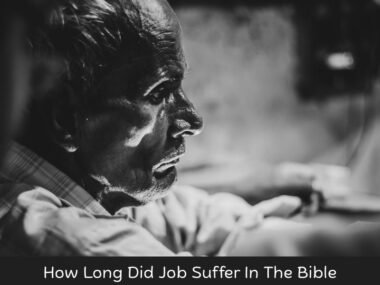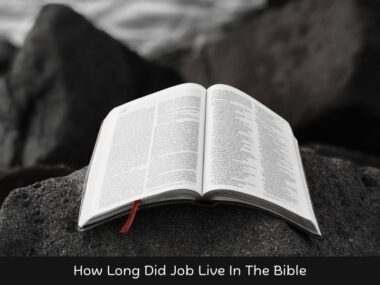The biblical account of Job stands as one of Scripture’s most profound explorations of human suffering and divine sovereignty. This righteous man from the land of Uz faced catastrophic losses that would break most people – his wealth vanished, his children perished, and his body became wracked with agonising disease. Yet Job’s story transcends mere tragedy; it represents the ultimate test of faith, where a blameless man wrestles with the most piercing spiritual questions.
As we examine Job’s ordeal, we confront timeless questions about the nature of suffering, the silence of God in our pain, and what it means to maintain faith when all earthly comforts are stripped away. The duration of Job’s testing becomes less significant than the transformative journey it produced – from prosperity to ruin, from certainty to doubt, and ultimately to a face-to-face encounter with the Almighty. This narrative doesn’t offer easy answers, but rather invites us into the mystery of suffering under God’s providence.
Job’s experience shatters simplistic notions that righteousness guarantees earthly blessings, while simultaneously affirming that even in life’s darkest valleys, God remains sovereign. His story continues to speak across millennia to anyone who has ever cried out in pain, “Why is this happening to me?” and sought to reconcile their suffering with their faith in a good and just Creator.
Background of Job’s Life
Job lived in the land of Uz and was described as the greatest man among all the people of the East. He was prosperous, righteous, and deeply faithful to God, offering sacrifices regularly for his children. Job’s life before his trials was marked by abundance, family joy, and spiritual devotion. His integrity and reverence for God set the stage for the cosmic test that would challenge everything he believed. Knowing his background highlights the stark contrast between his former prosperity and the suffering he endured, offering insight into the gravity and purpose of his trials.
Nature of Job’s Suffering
Job’s suffering was multidimensional—physical, emotional, social, and spiritual. He lost his livestock, servants, and ten children in a single day. Soon after, he was afflicted with painful sores from head to toe, leading to isolation and shame. Beyond the physical agony, Job faced intense emotional turmoil as his friends accused him of hidden sin. Spiritually, he wrestled with confusion, questioning why a just God would allow such immense suffering for someone righteous. This layered suffering makes his trial one of the most profound in the Bible and prompts the question: How long did Job endure such torment?
Timeline of Job’s Trials
The Bible doesn’t provide a specific duration for Job’s suffering, but scholars suggest his trials may have lasted months. Job 7:3 mentions “months of futility,” indicating his affliction was not brief. The timeline includes an initial period of sudden calamity, followed by extended dialogues with friends, silence from God, and eventual divine intervention. The restoration period appears swift compared to the prolonged suffering. While not quantified by exact timeframes, the emotional and spiritual weight of his ordeal gives the impression of a lengthy, agonising season of testing that shaped Job’s character and deepened his understanding of God.
Initial Calamities
Job’s trials began with a series of rapid, catastrophic losses. In one day, messengers arrived with news of raiding Sabeans, fire from heaven, Chaldean attacks, and a deadly windstorm that killed his children. These events stripped Job of everything valuable—possessions, status, and family—leaving him devastated. Yet, Job’s immediate response was worshipful: “The Lord gave, and the Lord has taken away; blessed be the name of the Lord” (Job 1:21). These initial calamities marked the beginning of his test, thrusting him into a prolonged season of grief and spiritual trial that would soon deepen with physical affliction.
Dialogues with Friends
Job’s three friends—Eliphaz, Bildad, and Zophar—initially came to comfort him, but ended up accusing him. They insisted his suffering must be punishment for sin, reflecting the traditional belief in retributive justice. Over several chapters, Job debates with them, defending his innocence while expressing frustration with God’s silence. These dialogues formed a core part of his testing, stretching over many speeches. Job’s emotional and intellectual wrestling during these conversations reveals the psychological and theological depth of his suffering. These debates prolonged his trial, as instead of receiving comfort, Job faced judgment, which compounded his isolation and spiritual struggle.
God’s Interventions
God eventually breaks His silence in chapters 38–41, responding to Job not with answers, but with questions. Through a whirlwind, God emphasises His sovereignty and the limitations of human understanding. He never directly explains why Job suffered but reveals the vast complexity of creation and divine governance. This intervention shifts the narrative, not by solving Job’s problems, but by realigning his perspective. Job responds with humility and repentance, acknowledging God’s greatness. This moment marks the beginning of restoration. God’s intervention ends the test, not by removing pain, but by deepening Job’s faith and redefining his understanding of justice.
Restoration Phase
In the final chapter, Job’s fortunes are restored. God rebukes the friends and instructs Job to pray for them. Job receives double what he had lost—livestock, new children, and a long life. Importantly, Job’s restoration is not just material; it includes spiritual renewal and relational healing. The timeline for this restoration is not specified, but its speed compared to the extended suffering suggests divine grace. This phase marks the closure of his testing. It doesn’t erase his pain but affirms that endurance and faith in adversity lead to renewal. Job’s test ends with transformation, not mere compensation.
Theological Insights
Job’s story challenges simplistic views of suffering and divine justice. It confronts the notion that all pain is punishment and affirms that suffering can serve greater purposes—testing faith, refining character, and revealing God’s sovereignty. Job’s endurance invites readers to trust God even when answers are lacking. The narrative reveals that divine justice is not always immediate or visible. Job’s experience demonstrates that faith doesn’t require full understanding but steadfast trust. His story illustrates the complexity of God’s relationship with humanity and the value of faith refined through suffering, rather than rewarded through prosperity alone.
Reasons Behind Job’s Suffering
Job’s suffering was part of a divine test initiated in a heavenly courtroom where Satan challenged Job’s integrity. The primary reason wasn’t punishment, but to demonstrate that Job’s faith was genuine and not dependent on blessings. His ordeal exposes how easily humans link suffering with guilt and prosperity with righteousness. The true reason was to reveal the nature of unconditional faith. Job’s experience serves as a theological lens through which believers can understand suffering not as retribution, but as a proving ground for trust, integrity, and divine purpose beyond human perception.
Meaning of Divine Justice
Divine justice in Job’s story operates beyond human logic. While his friends argue for a reward-punishment system, the narrative shows that God’s justice may involve unseen purposes. Job’s vindication, without a clear explanation, teaches that divine justice is not always immediate but is ultimately restorative. God’s response to Job shifts the focus from fairness to sovereignty. Instead of giving reasons, God reminds Job that human wisdom cannot grasp divine complexity. The lesson is that God’s justice includes mystery, mercy, and the long arc of redemption—often invisible in the moment, but always consistent with His character.
Role of Faith and Trust in Adversity
Job’s enduring faith amidst unrelenting suffering exemplifies trust without understanding. He lamented, questioned, and even despaired, but he never abandoned his belief in God’s ultimate authority. His statement, “Though He slay me, yet will I trust Him” (Job 13:15), is a profound declaration of faith under fire. This role of trust transforms suffering from meaningless pain into a spiritual journey. Job’s life shows that faith is not the absence of doubt, but the persistence of belief amid confusion. His trust didn’t shorten the trial, but it shaped the outcome, leading to a deeper relationship and ultimate restoration.
King David’s Trials
King David faced numerous hardships—fleeing from Saul, family betrayal, and the consequences of personal sin. Like Job, David cried out to God in anguish but maintained trust. However, David’s trials often stemmed from personal choices, unlike Job’s undeserved suffering. Yet both men illustrate how adversity can refine character. David wrote Psalms that echo Job’s emotional cries, creating a biblical dialogue on pain and redemption. Comparing the two reveals different facets of trial—Job as a test of integrity without fault, and David as the redemption of a flawed man. Both underscore that God’s presence remains through suffering.
Lessons from King Josiah
King Josiah was a righteous king who led spiritual reform in Judah. Despite his faithfulness, he died in battle—a confusing event for those expecting divine protection. Josiah’s premature death, like Job’s suffering, raises questions about the fairness of life. His story reinforces that righteousness does not guarantee a trouble-free existence. Instead, it shows that obedience honours God, regardless of outcomes. Josiah, like Job, models faithful leadership even when God’s ways seem mysterious. These parallels suggest that trials are not always punishments, but part of divine purposes that surpass human expectation or understanding.
Parallel between Personal Trials and Spiritual Growth
Job’s trials mirror the spiritual growth many experience through adversity. Hardship exposes inner truths, tests convictions, and refines faith. Like Job, believers often face seasons of loss or confusion that challenge their understanding of God. These moments can either embitter or deepen spiritual roots. Personal trials become sacred spaces for transformation when approached with honesty and trust. Job’s journey offers a framework: endure, question, seek God, and be willing to grow. Spiritual maturity often blooms not in comfort but in crisis, and Job’s life affirms that trials are fertile ground for growth, not just suffering.
Understanding Personal Suffering
Job’s story invites readers to reflect on their suffering with a fresh perspective. Instead of asking “Why me?” Job asks, “Where is God in this?” His journey shifts the focus from blame to relationship. Understanding personal suffering through Job’s lens means recognising it as part of a bigger spiritual narrative, sometimes beyond our control or comprehension. His story encourages a posture of humility and openness rather than bitterness. It teaches that suffering doesn’t always mean failure or judgment. Instead, it can be a sacred opportunity to draw closer to God and deepen personal faith.
Spiritual Enlightenment through Adversity
Adversity often clears the fog of self-reliance and reveals deeper truths. Job moved from knowing about God to truly encountering Him. “Now my eyes see You,” he declares in Job 42:5. This spiritual enlightenment didn’t come from comfort but through crisis. Pain stripped away superficial beliefs and brought Job to a clearer, more intimate relationship with God. For many, spiritual insight is sharpened in the fire of trials. Job’s enlightenment reminds us that adversity, though painful, can become a powerful teacher, revealing God’s character, our own need, and the true nature of faith.
Restoration and Hope
Job’s story ends with restoration—not just materially, but relationally and spiritually. God not only blesses Job with double what he lost but also honours his prayer for his friends. The restoration phase reaffirms that suffering, though intense, is not the final word for the faithful. Hope in the biblical context is rooted in God’s redemptive nature. Job’s hope was not in outcomes but in God Himself, a hope that sustained him through uncertainty. His story encourages believers to hold on, knowing that restoration may not be immediate but is assured in God’s time.
Job’s Relationship Restoration with God
The turning point in Job’s story is not when his health is restored but when he recognises God’s sovereignty and repents. This relational restoration is the true climax. Job’s lament turns to reverence, and God responds not with punishment but with presence. Their restored relationship is marked by deeper understanding and renewed faith. This intimacy is more valuable than any material recovery. Job’s experience illustrates that the most important restoration after a trial is not what we regain, but how we reconnect with God—humbly, authentically, and faithfully.
Impact of Jesus’ Teachings
Though Job predates Jesus, his story finds fulfilment in Christ’s teachings on suffering, grace, and faith. Jesus affirmed that suffering is not always linked to sin (John 9:1-3), echoing Job’s experience. His Sermon on the Mount blesses those who mourn and suffer for righteousness principles lived out in Job’s life. Jesus’ suffering and victory on the cross provide the ultimate lens to understand Job’s trials. Through Christ, suffering becomes redemptive, and faith finds its anchor. Job’s patience is even referenced in James 5:11, linking Old Testament endurance with New Testament hope in Jesus.
Cosmic Debate: God vs. Satan
The opening of Job reveals a cosmic courtroom scene. Satan challenges Job’s integrity, suggesting he is faithful only because of God’s blessings. God allows Satan to test Job, not as punishment, but to prove that true faith can endure suffering. This divine wager sets the stage for everything Job endures. It also frames human suffering as part of a larger spiritual narrative—one that transcends earthly logic. The cosmic debate isn’t about Job alone but about the nature of faith itself. This framing elevates Job’s trials to a test of eternal significance.
Implications of the Debate
The debate between God and Satan in Job holds deep implications for humanity. It reveals that human lives are not isolated; they are part of a greater spiritual story. Job’s suffering becomes a proving ground for the integrity of faith. This concept challenges the prosperity gospel and comforts the afflicted, showing that trials can be affirmations, not condemnations. It also reminds us that God trusts His people to remain faithful. The debate proves that righteousness is not conditional on blessings. For believers, this elevates suffering from meaningless pain to meaningful purpose.
Human Suffering as a Spiritual Test
Job’s story portrays suffering not merely as misfortune, but as a test of faith. Like a refining fire, it reveals the depth of one’s trust in God. Job’s patience under extreme pressure has become a biblical symbol of perseverance. The test wasn’t to break him but to prove and strengthen his character. In the same way, many believers today experience trials that test their convictions. Rather than signs of divine displeasure, such tests may be divine opportunities. Job’s endurance teaches that though trials are painful, they often lead to spiritual elevation and eternal reward.
Conclusion
While the Bible does not provide an exact duration for Job’s testing, internal clues suggest that his suffering spanned several months (Job 7:3). However, the focus of the Book of Job is not on precise timelines but on the depth of his endurance, the complexity of divine justice, and the transformative power of faith. Job’s unwavering commitment to God, despite intense physical, emotional, and spiritual anguish, highlights the purpose behind prolonged trials—not as punishment, but as refinement. His story reminds believers that suffering, though painful, can be meaningful when entrusted to God. Ultimately, Job’s test ended with restoration, but more importantly, with spiritual renewal and a deeper understanding of God’s sovereignty. The length of Job’s testing matters less than the faith it revealed and the hope it continues to inspire. His life encourages us to remain steadfast, knowing that every trial has divine significance.







